Are you feeling regret for having not created system backup image when you updated Windows 7 or Windows 8 to Windows 10? Now it's already 30 days later or even months later, you are unable to rollback to Windows 7 or Windows 8 again.
Don't worry. Here below, we'll provide you effective methods to help you roll back to Windows 7/8 after 30 days without losing any data.
Backup Windows system and data first
To avoid unexpected or unwanted system failure or data loss problems due to Windows 10 downgrade issue, it's highly recommended for you to back up your present Windows system and important data.
Professional Windows backup software - EaseUS Todo Backup can help you simply backup wanted data, partition or even system for free within 30 days. And just a few simple clicks will do all backup jobs. You can free download this software and start backing up data and system now:
Secure Download
Step 1. Click "Select backup contents" to initiate a backup.
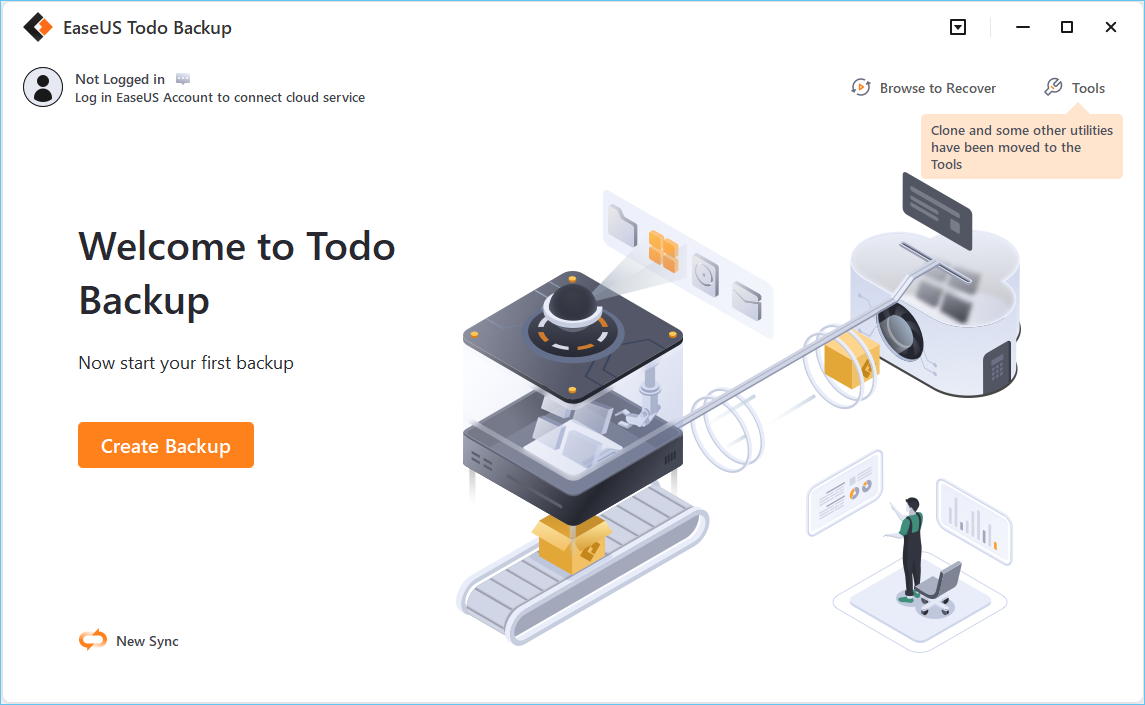
Step 2. There are four data backup categories, File, Disk, OS, and Mail, click File.
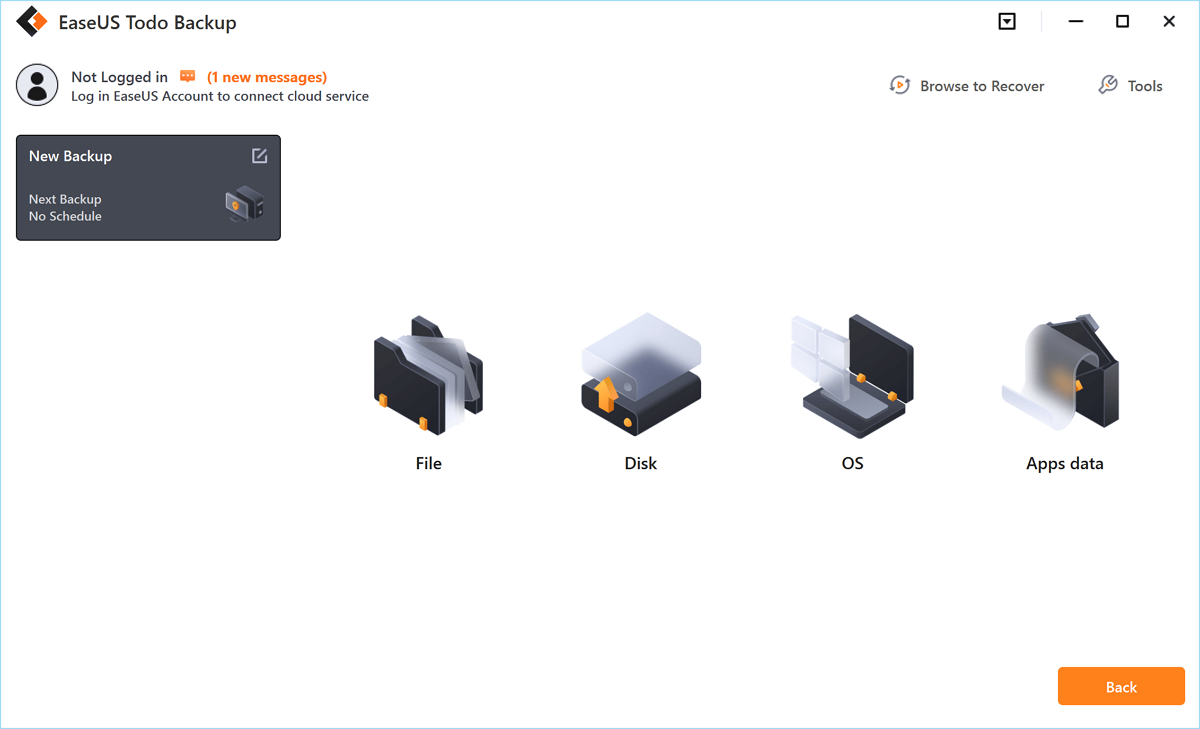
Step 3. Local and network files will be displayed on the left side. You may extend the directory to choose which files to back up.
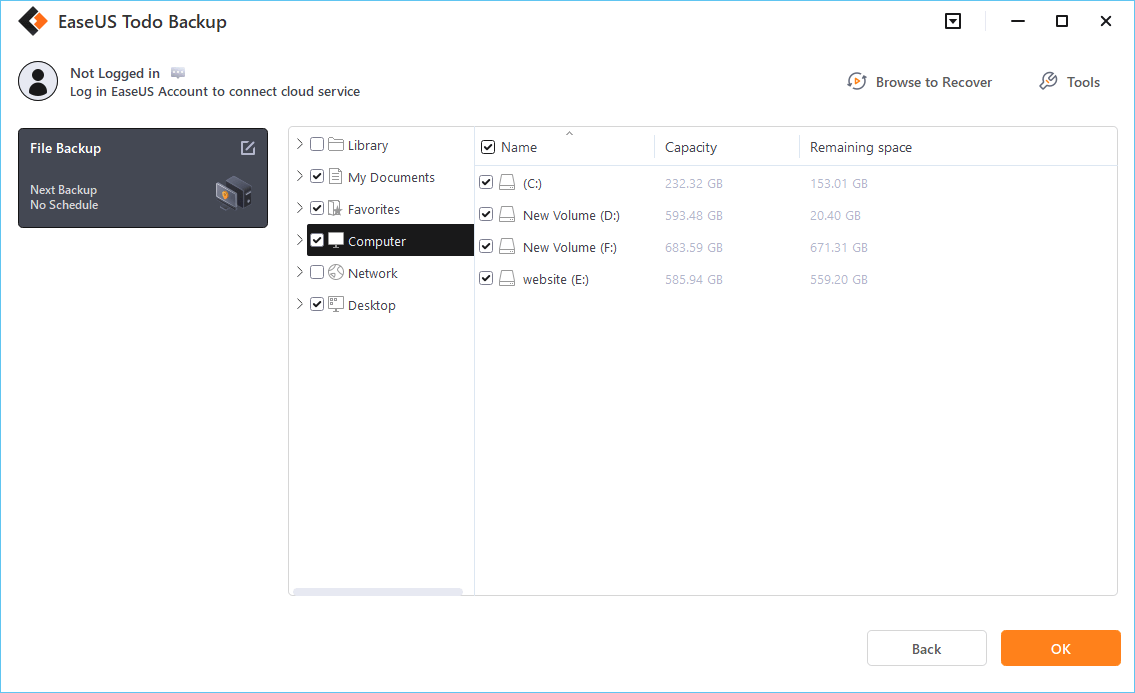
Step 4. Select the location where you want to store the backup by following the on-screen instructions.
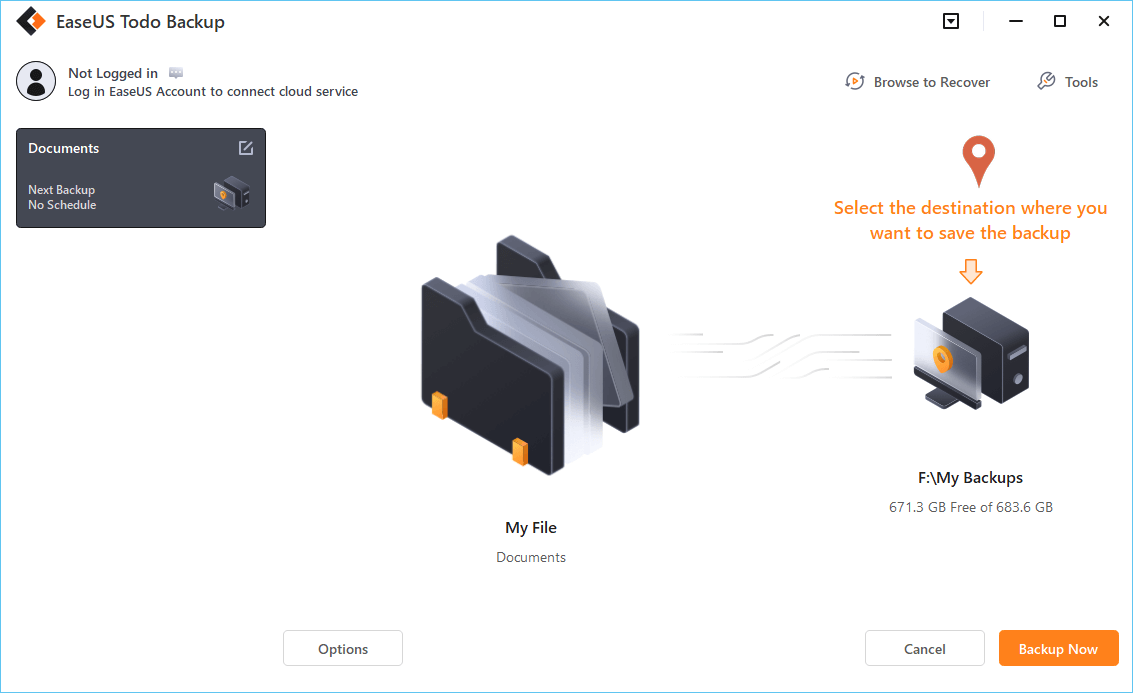
Click "Options" to encrypt the backup with a password in "Backup Options," and to setup a backup schedule and choose to initiate a backup at a certain event in "Backup Scheme." There are a variety of other customization options available for the backup process.
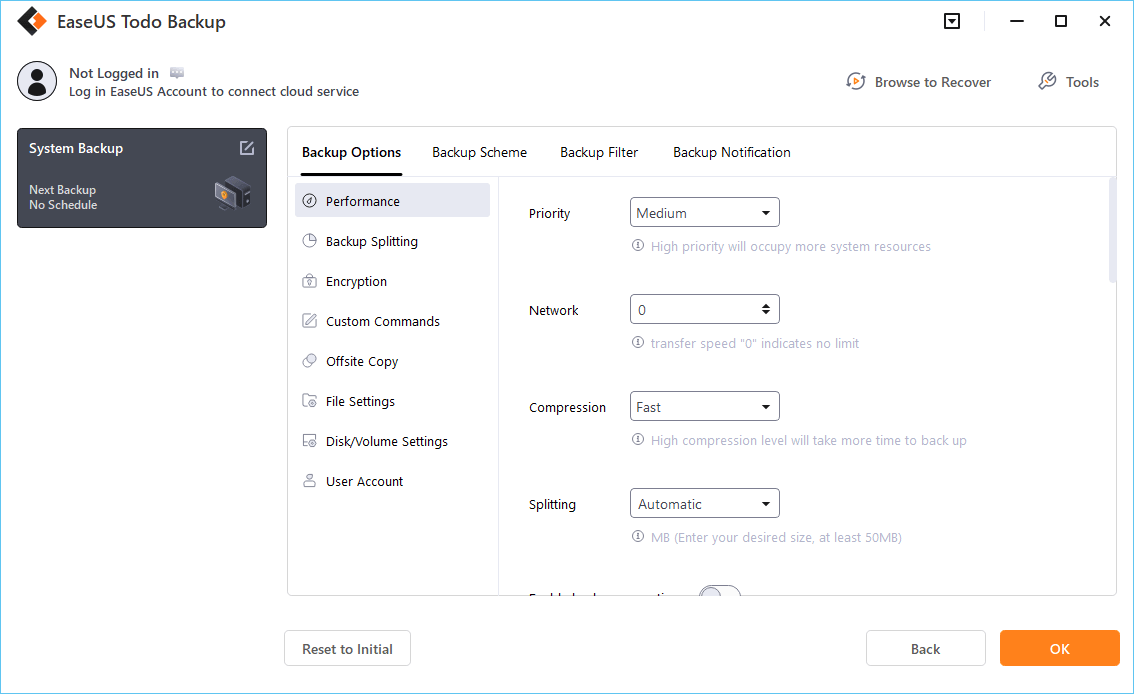
Step 5. You may save the backup to a local disk, EaseUS' online service, or a NAS.
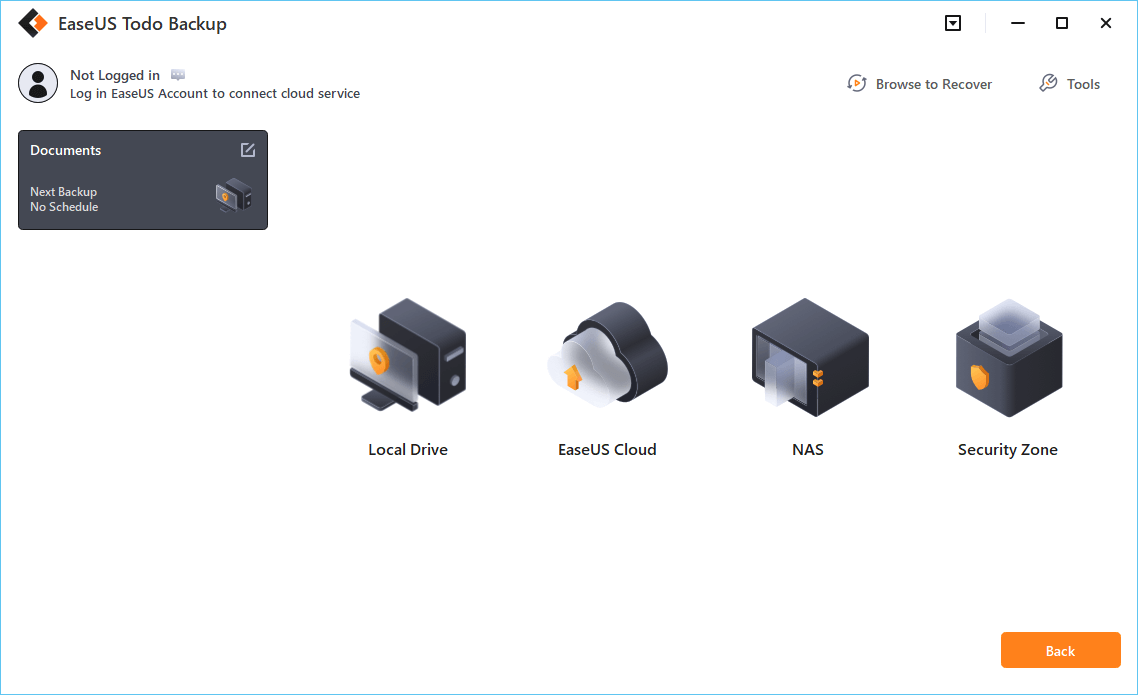
Step 6. EaseUS Todo Backup enables customers to back up data to a third-party cloud drive and its own cloud drive.
If you want to back up data to a third-party cloud drive, choose Local Drive, scroll down to add Cloud Device, add your account, and then log in.
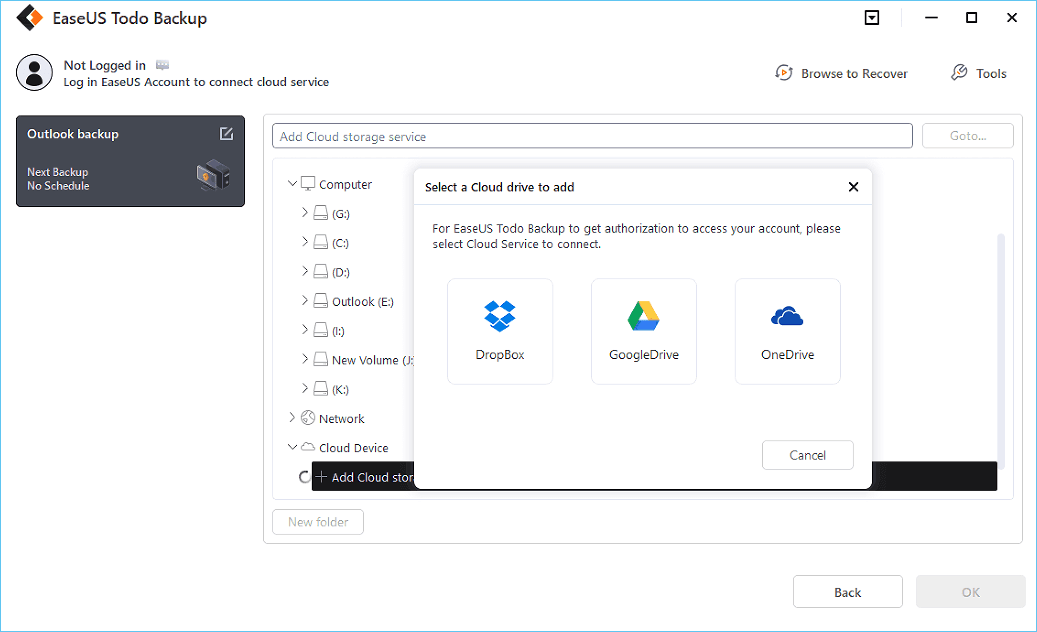
You can also save backups to EaseUS's cloud storage service. Sign up for an EaseUS Account and log in after clicking EaseUS Cloud.
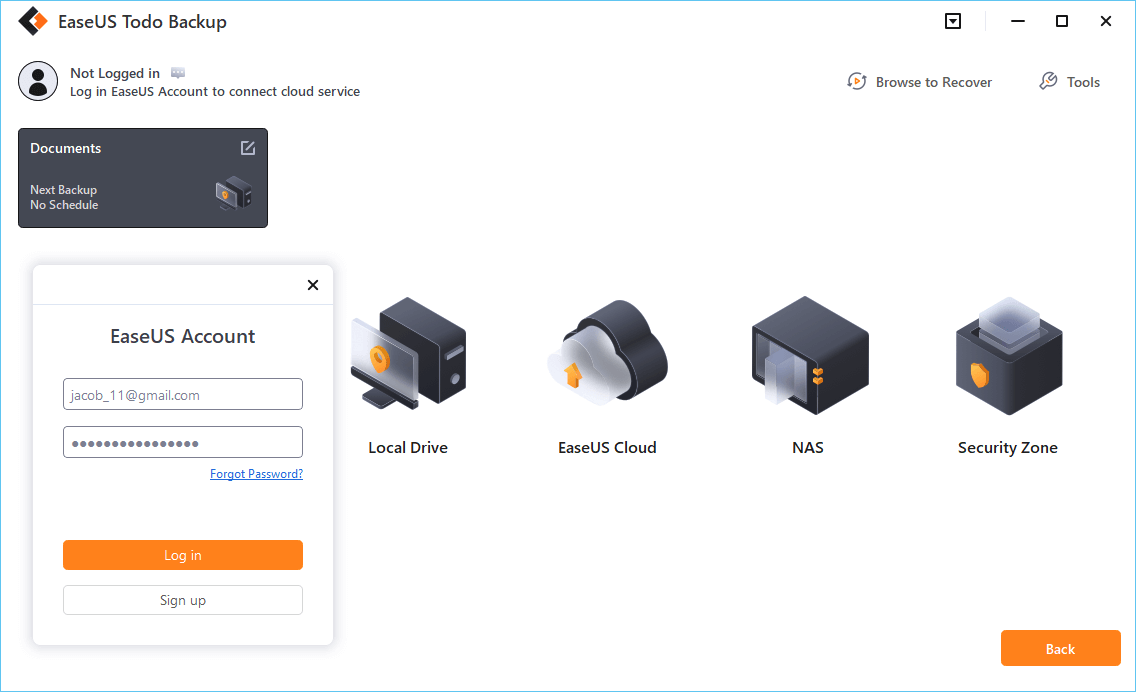
Step 7. To begin backup, click "Backup Now" Once the backup process has been finished, it will be shown as a card on the panel's left side. To further manage a backup job, right-click it.
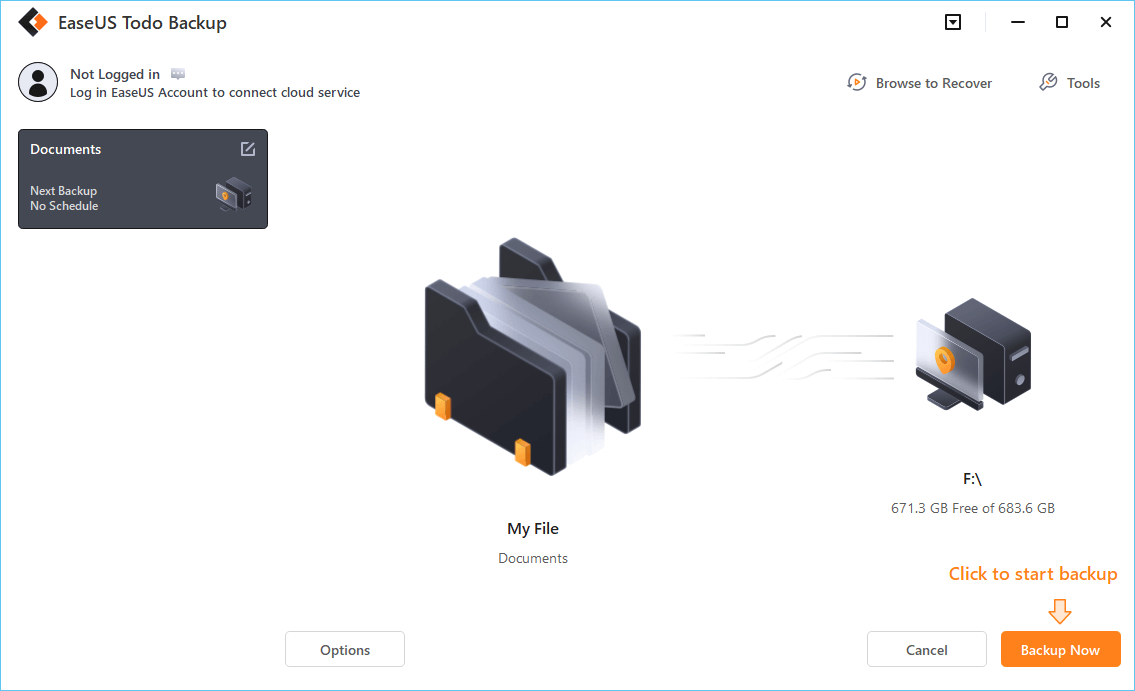
When you finish the system downgrade task, you can use EaseUS Todo Backup to restore the data backups to Windows 7 or 8 and continue to use them again. So now let's see how to roll back to Windows 7 or 8 after 30 days limit.
Downgrade Windows 10 to Windows 7 or 8 after 30 days
There are four methods available. Carry out the one best suited to your needs.
Method 1. Roll back to Windows 7/8 on 31 day
This is true that if you just happen to update to Windows 10 for a month if you start right now, you can still have a chance (which shall be your last chance) to downgrade Windows 10 to Windows 7/8 directly:
Go to "Settings" > Tap: "Update and security" > Click "Recovery" > Tap: "Get Started" under Go Back to Windows 8.1 or Go Back to Windows 7.
Then all you need is to wait patiently and welcome the old Windows 7 or 8 come back to your computer.
Method 2. Change folder name within 30 days and roll back to the previous system after 30 days with ease
This method requires you to change some folder names within the 30 days after you update to Windows 10. And then you can roll back to the previous system such as Windows 7 or Windows 8 freely without any limits after 30 days limit.
Solution 1. Rename folders: $Windows.~BT, $Windows.~WS, Windows.old folder to Bak-$Windows.~BT, Bak-$Windows.~WS and Bak- Windows.old respectively.
Then Windows 10 will not be able to delete Windows.old folder with these folders since you've changed the names.
If you need to rollback after 30 days, you can rename these folders back to their original names and follow steps in below:
Solution 2. Go to "Settings" > "Update & security" > "Recovery" > "Go back to Windows 8.1 or Windows 7".
You can also backup these 3 folders to an external drive with original names, when you need to downgrade system, copy these three folders back and then follow step 2 to downgrade.
Method 3. Uninstall delete Windows 10 after 30 days so to roll back to Windows 7/8
This method will suit for those Windows 10 users who have only update only once: from Windows 7 or Windows 8 to Windows 10. If you have updated Windows 10 into many versions, this method may not help. But if you have just updated system once, you can uninstall and delete Windows 10 so to roll back to Windows 7 or 8 after 30 days.
Go to "Settings" > "Update & security" > "Recovery" > "Get Started" > Choose "Restore factory settings".
The Restore factory settings option will remove your personal files, apps, and settings, and even reinstall the version of Windows that came on this PC.
Method 4. Roll back to Windows 7 or 8 by performing a clean install
If you have updated Windows 10 into many builds or fail to roll back to Windows 7 or 8 by following the above-recommended methods, to perform a clean installation of Windows 7 or Windows 8 shall be your best chance.
You can directly go to Microsoft Windows page and download relative Windows 7 or Windows 8 ISO files or relative installing patches, then perform a clean install on your PC.
Was This Page Helpful?
Daisy is the Senior editor of the writing team for EaseUS. She has been working at EaseUS for over ten years, starting as a technical writer and moving on to being a team leader of the content group. As a professional author for over ten years, she writes a lot to help people overcome their tech troubles.
Jean is recognized as one of the most professional writers in EaseUS. She has kept improving her writing skills over the past 10 years and helped millions of her readers solve their tech problems on PC, Mac, and iOS devices.
Related Articles
-
Call of Duty Warzone Save Files (Everything You Need to Know)
![author icon]() Larissa/2025-07-04
Larissa/2025-07-04 -
How to Change the Administrator on Windows 10 [Step-by-Step Guide]
![author icon]() Daisy/2025-07-10
Daisy/2025-07-10 -
Use CHKDSK to Fix the Selected Volume Corruption Problem in Windows 10
![author icon]() Jean/2025-07-04
Jean/2025-07-04 -
9 Ways to Fix "The Remote Computer Requires Network Level Authentication"
![author icon]() Daisy/2025-07-10
Daisy/2025-07-10
EaseUS Data Recovery Services
EaseUS data recovery experts have uneaqualed expertise to repair disks/systems and salvage data from all devices like RAID, HDD, SSD, USB, etc.